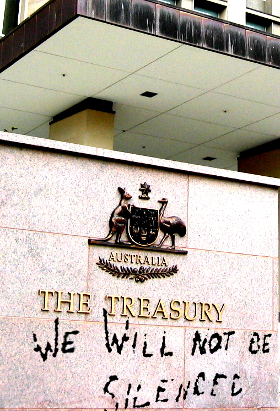Staff asked to think while Department looks for silence

Public Service Commissioner Stephen Sedgwick has penned an article for the Canberra Times saying top bureaucrats should speak with the government's ethics advisory service before attempting to control public employees' online activities.
Mr Sedgwick was speaking in relation o the department of Prime Minister and Cabinet’s new protocol urging staff to dob-in co-workers who criticise government policy online.
He did say departments would avoid future furores with better planning before public announcements over comments on Twitter, Facebook and other social media services.
“Australian Public Service agencies have a responsibility to interpret these guidelines in the context of their work, and design their own policies and guide employees so they can make good judgements about whether to comment in their personal capacity and, if so, what to say, with confidence,” the commissioner wrote.
“The Australian Public Service Commission, through the ethics advisory service, can assist in this regard.”
There has been no comment on the contentious new guidelines in the PM&C department by secretary Ian Watt, possibly because it would breach the now-notorious protocols.
Questions remain as to whether the ethics advisory service brought into consulted about the guidelines
Mr Sedwick wants public servants to be more aware of their “special status” among citizens in public discourse.
“Public servants have long been asked to exercise judgement when putting forward their personal views, recognising the special status of their chosen profession,” the commissioner wrote.
“We want public servants who will be ‘of the community’ and no doubt public servants will share in the spectrum of beliefs that are found in the community.
“Material posted online effectively lasts forever, may be replicated endlessly and may be sent to recipients who were never expected to see it or who may view it out of context.
“These features warrant very careful consideration when commenting online.
“Moreover, anonymity cannot be guaranteed. Ill-considered comments made online on the spur of the moment, whether using one’s real name or not, can have far-reaching consequences.”








 Print
Print